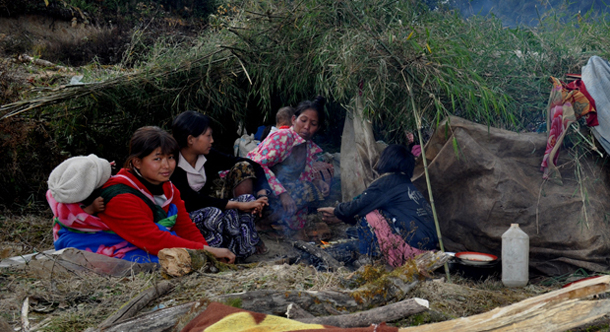STOCKHOLM, Sweden — The Swedish government says women in Burma can count on its support in furthering gender equality and protecting them from violence over the next four years.
Under Sweden’s recently adopted National Action Plan for 2016-20, Burma has been identified as one of 12 specially prioritized conflict or post-conflict countries struggling to implement UN Security Council Resolution 1325 and subsequent resolutions on Women, Peace and Security.
With Burma home to the world’s longest-running ongoing armed conflict, Burmese women have suffered sexual violence and other forms of abuse in conflict-affected areas for decades. In the country’s ongoing peace process, women have largely been excluded from participation, and women’s rights advocates say the few women who are officially involved in negotiations are not accorded the same voice as their male counterparts.
The action plan adopted earlier this month is mainly focused on strengthening women’s participation in the country’s peace process and state-building, and protecting them from harm. Efforts will be underpinned by the crux of the UN Security Council Resolution 1325: Passed in 2000, it highlights “the important role of women in the prevention and resolution of conflicts, peace negotiations, peace-building, peacekeeping, humanitarian response and in post-conflict reconstruction and stresses the importance of their equal participation and full involvement in all efforts for the maintenance and promotion of peace and security.”
The structure of the action plan emphasizes approaching issues of Women, Peace and Security from a gendered perspective.
“We have decided to prioritize the works in focused countries,” Disa Kammars Larsson from Kvinna till Kvinna, a Swedish foundation focused on peace and gender equality that was involved in drawing up and implementing the action plan, told The Irrawaddy.
She said that unlike Sweden’s previous two National Action Plans, the 2016-20 iteration has much stronger “political ownership,” with the inclusion of the Swedish Foreign Ministry in implementation of the plan allowing it the opportunity to better wield influence with Burma and the other targeted countries with respect to women’s rights.
“It clearly included political dialogue; that if Swedish diplomats and ministers visit to the focus countries, he or she has a responsibility to raise this issue and the Swedish Embassy in the country has the responsibility to report back to Sweden annually on the situation.”
The National Action Plan would require regular consultation with women’s rights defenders on the ground in Burma, she added.
Thandar Oo, a women’s rights and peace activist from Shan State, urged the international community to support women’s advocates working at the grassroots level to enhance these activists’ capacity to increase women’s participation in all realms of society.
Under the action plan, Burma is joined by Afghanistan in Asia; Iraq, Palestine and Syria in the Middle East; Colombia in Latin America; the Democratic Republic of the Congo, Liberia, Mali and Somalia in Africa; and Bosnia-Herzegovina and Ukraine in Europe, as priority nations.

















